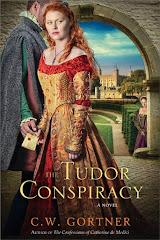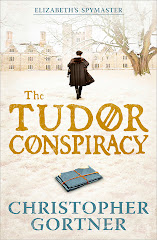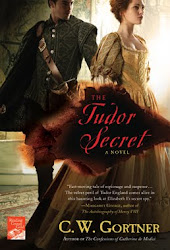I'm delighted to welcome V.E. Ulet, author of CAPTAIN BLACKWELL'S PRIZE. Set during the time of the Revolution in France, this historical nautical adventure has been praised by the Historical Novel Society as "a fine story . . . highly recommended for those who enjoy a romantic tale with a little action included, as well." Please join me in welcoming V.E. Ulet.
What inspired you to write historical fiction? Tell us about
your book Captain Blackwell's Prize.

I'm an avid reader and I started writing because I love
reading so much. I soon found they are very different animals. Reading is a
pleasure and a joy, writing is also, but much more work is involved. Much more
effort, using all your powers at full stretch.
Captain Blackwell's Prize is historical and nautical
fiction. The story takes place during the time of the Revolutionary war in
France, and during the long war that eventually involved most of Europe. This
was the time of Napoleon, the famous Lord Nelson, and the time during which
Jane Austen was an adult and actively writing. A fictional Jane Austen figures
as a minor character in Captain Blackwell's Prize. I should add it is an adult
novel.
Tell us about the time period in which your book is set.
What drew you to the particular era? Did you feel obliged to remain true to the
actual events, social structures and political circumstances of the time
period, or did you feel free to take license with historical record?
Captain Blackwell's Prize is set during the Revolutionary
and Napoleonic wars, and the story centers around a captain in the Royal Navy.
I have a keen interest in the world of wooden ships and iron men of that era.
I've read all twenty of Patrick O'Brian's magnificent Aubrey / Maturin novels, all
of C.S. Forrester's Hornblower books, and many of the contemporary writers of
nautical fiction like Dewey Lambdin, David Donachie, J.D. Davies, Broos
Campbell.
Do I feel obliged to remain true to actual events of the
time period? In Captain Blackwell's Prize I take liberties with the time line
of history. It suits my story to have the Spanish involved in the European
conflict right before the Peace of Amiens, in truth I don't think Spain was in
the war at that time. But they came in and out of it as Napoleon's ally so
frequently that it is hard to keep track. So I certainly deviate from the
historical record. What I don't take liberties with is the world and culture of
Nelson and Napoleon's day. I'm very careful about word choice and the way
characters express themselves, and why they speak and act as they do.
What process did you use to transport yourself (and readers)
to another time period? Tell us a little about your research.
Here is where my interest in naval adventure stories and the
Regency and Napoleonic periods in Europe led me to search out and read primary
source material. These are letters, diaries, journals, dispatches, first hand
accounts of life at sea in a wooden vessel and the world of Lord Nelson and
Jane Austen. Here's a short list.
Five Naval Journals 1789 – 1817
The Wynne Diaries 1789 – 1820
The Dispatches & Letters of Lord Nelson

It's through the language of the story and the characters
that I hope to transport readers to the eighteenth and early nineteenth
centuries. This is why research using those primary source materials is
important, to capture how people of that time expressed themselves. Equally
important is why they felt as they did. This Republic of Suffering by Drew
Gilpin Faust is an excellent non-fiction book about death and the Civil War,
and in it the author examines how the view of death in the mid-nineteenth
century was very different from ours today. People had a concept about an
'honorable' death, and 'dying well', that is, being prepared to meet your
Maker.
I hope to capture in the language
of Captain Blackwell's Prize, in what the characters say and why they say it,
that world in Europe during Napoleon's time.
Does your historical fiction convey a message or theme
that’s relevant to our world today? If so, what do you think it is?
I don't write with a theme in mind. I believe the primary
duty of fiction is to entertain, that's my focus as I write a story. Good
novels, of course, are about many things. I wouldn't be unhappy if, behind the
sword fights and sea battles in Captain Blackwell's Prize, you learn something
of the circumscribed lives of women in 1802. But my first question as an author
of historical fiction is, are you not entertained?
Tell us about your next project.
Captain Blackwell's Prize is the first of three historical
adventures. The second, BLACKWELL’S PARADISE takes Captain Blackwell and
Mercedes into the Pacific ocean and the world of early nineteenth century
exploration, on a new personal and cultural adventure.
Thank you for having me on Historical Boys, I think Captain
Blackwell's Prize and its sequel are books both men and women will enjoy.
Thank you for being here and we wish you much success! To
find out more about V.E. Ulet and her work, please visit her website.
 Bitter Greens by Kate Forsyth
Bitter Greens by Kate Forsyth













